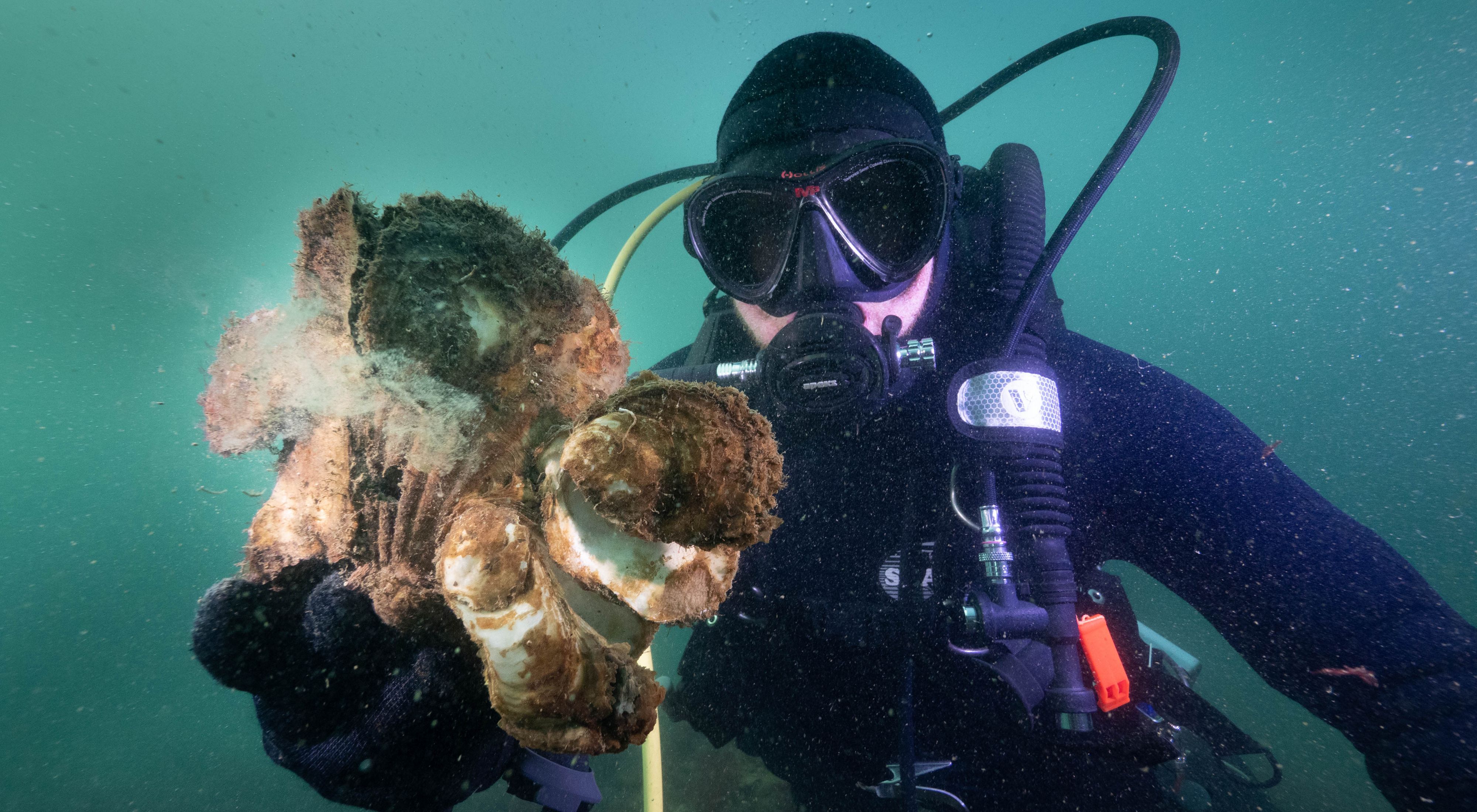Port Phillip Bay and Gippsland Lakes restored shellfish reefs take the cake at Victorian Marine and Coastal Awards
Media Contacts
-
Vanessa Billy
Communications Manager
The Nature Conservancy Australia
Mobile: 0478 638 180
Email: vanessa.billy@tnc.org
The Nature Conservancy Australia (TNC) is delighted to have won the Distinction in Biodiversity and Ecosystem Conservation Award at the prestigious Victorian Marine and Coastal Awards last night for its shellfish reef restoration work in Port Phillip Bay and the Gippsland Lakes.
The Award recognises projects, programs and initiatives which contribute to enhancing, conserving and protecting coastal and marine ecosystems and species, through marine and/ or coastal management, planning or operations.
Simon Branigan, TNC’s Marine Restoration Manager, said it was an honour to receive the award on the night.
“This is a fantastic recognition of the importance of our work in shellfish reef restoration and a wonderful homage to the vital role shellfish reefs play for nature and people,” Mr Branigan said.
“This award is also a testament to the strong collaborative partnerships we have created around our restoration projects. Our partners inspire us to be more innovative and to always aim higher,” Scott Breschkin, Marine Conservation Officer at TNC, said.
TNC and its partners began restoring shellfish reefs in Port Phillip Bay in 2017 and have since then worked across Australia to bring back these important ecosystems from the brink of extinction.
Since 2017, TNC has restored nearly 11 ha of shellfish reefs in Port Phillip Bay and 2.5 ha in the Gippsland Lakes, with support from the East Gippsland Catchment Management Authority, in what is the largest marine restoration effort ever undertaken in Victoria. From 2021 to 2023, shellfish reef restoration efforts were part of Reef Builder, a partnership between TNC and the Australian Government.
The newly restored reefs in Port Phillip Bay show fantastic results, with great numbers of Australian Flat Oysters living on the reefs and large schools of juvenile fish calling the reef home, including Snapper, Silver Trevally, Yellowtail Scad, Southern Goatfish and Bridled Leatherjacket.
In the Gippsland Lakes, the reefs have also largely exceeded expectations with large numbers of Blue Mussels naturally recruiting and living on the reefs.
The restored shellfish reefs provide habitat for several species of fish including Bream, Snapper, Whiting, Rock Ling and Trevally.
“What is also really exciting,” Mr Branigan said, “is that our monitoring shows that the biodiversity at reef restoration sites is higher than it would have been if no restoration had occurred. Ultimately, these results are what we strive for, and we are delighted to share them with the Victorian public through this great acknowledgement.”
The Nature Conservancy is a global conservation organisation dedicated to conserving the lands and waters on which all life depends. Guided by science, we focus on getting things done efficiently and with the greatest positive impact for conservation. We’re a trusted organisation working in more than 70 countries and territories around the world on innovative solutions to our world’s toughest challenges so that nature and people can thrive together. To learn more about The Nature Conservancy in Australia, follow us on Facebook.
